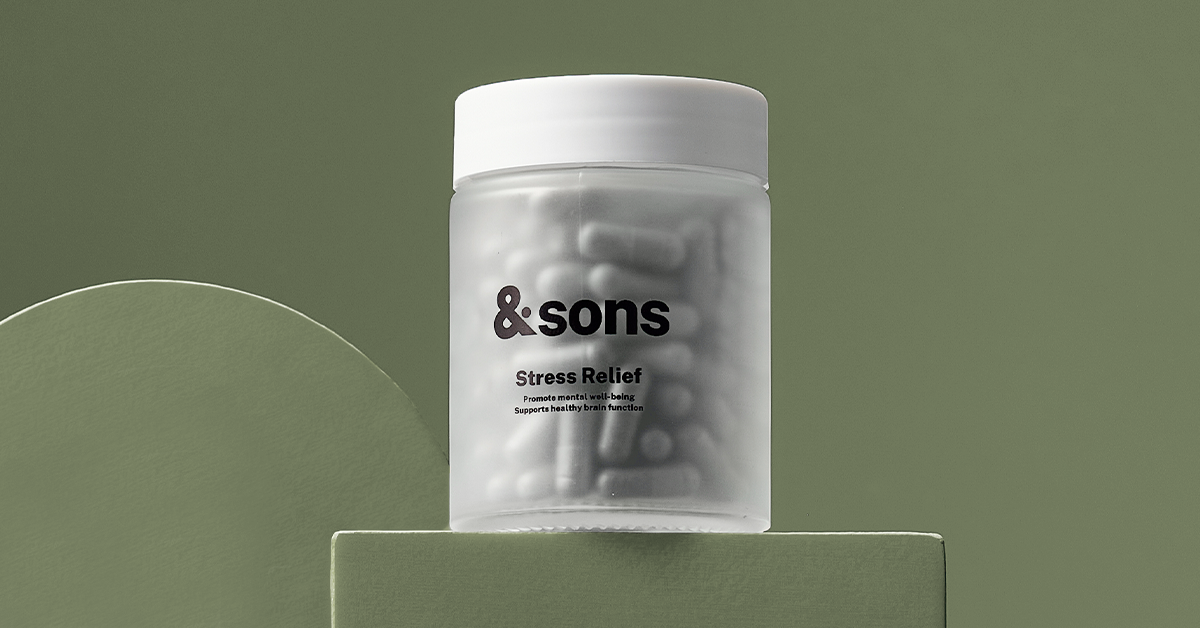Introduction
Unlock the secrets to a calmer, more balanced life as we dive into the world of stress relief medication. This guide will reveal its benefits and safety, empowering you to take control of stress and rediscover tranquillity in your everyday life. Let’s begin this transformative journey together.
Overview
Stress has become an unwelcome companion for billions in today’s fast-paced world. With the daily challenges, finding effective ways to relieve stress quickly is essential for maintaining our overall well-being. One increasingly popular option for stress relief is the use of stress medicine. This article will delve into the benefits and safety aspects of medication for stress relief while shedding light on common symptoms of stress and how to manage it. Discover how stress relief medication can transform your life by helping you release stress and enjoy the numerous benefits of managing stress effectively.
Common Symptoms of Stress
There are many symptoms of stress, each of which can be separated into its own category such as:
Sleep disturbances:
Difficulty falling asleep, staying asleep, or experiencing restless sleep.
Physical tension:
Experiencing muscle tension, headaches, and aches in various body parts.
Emotional disturbances:
Mood swings, irritability, and a general feeling of being overwhelmed.
Cognitive difficulties:
Stress can manifest in problems with concentration, memory, and decision-making.
Fatigue:
Persistent tiredness, even after adequate rest.
Changes in appetite:
Stress can lead to either a loss of appetite or overeating as a coping mechanism.
Social withdrawal:
Withdrawal from social situations and avoiding interaction with friends or family.
Anxiety and panic attacks:
Excessive stress can cause anxiety and sometimes result in panic attacks.
Medication for stress relief
Medication can effectively release stress, especially with other stress management techniques such as therapy, exercise, and relaxation. Some common types of stress medicine include anti-anxiety medications, antidepressants, and beta-blockers. These medications target neurotransmitters in the brain to help regulate mood, reduce anxiety, and improve overall well-being. It’s essential to consult with a healthcare professional before starting any medication for stress relief, as they can help determine the most appropriate treatment for your specific needs.
Benefits of managing stress
Stress reduction does wonders for one’s health. It not only enhances mental capabilities, but it shows positive effects on physical attributes as well. This is illuminated by the following:
Improved mental health:
Reducing stress levels can lead to better overall mental health and a decrease in symptoms of anxiety and depression.
Enhanced cognitive function:
Managing stress can improve focus, memory, and decision-making abilities.
Better physical health:
Lowering stress levels can reduce the risk of stress-related illnesses such as heart disease, gastrointestinal issues, and immune system dysfunction.
Improved relationships:
Learning how to relieve stress quickly and effectively can result in better communication and stronger connections with friends, family, and colleagues.
Increased productivity:
Effectively managing stress can increase efficiency and productivity in both personal and professional life.
Conclusion
As we reach the end of this enlightening exploration, it’s clear that medication for stress relief holds the potential to revolutionise our approach to handling life’s challenges. By collaborating closely with healthcare professionals and embracing a comprehensive stress management plan, you can harness the power of stress medication to improve your mental and physical well-being. So, step boldly into a brighter, more serene future, where the weight of stress is lifted and the countless benefits of effectively managing stress await you. Let this journey be the catalyst for lasting change and renewed harmony in your life.
FAQs
1. Do stress pills help with anxiety?
Stress pills, such as anti-anxiety medications and antidepressants, can help with anxiety. These medications work by altering the balance of certain chemicals in the brain, specific neurotransmitters like serotonin, norepinephrine, and dopamine. These neurotransmitters play a crucial role in mood regulation and anxiety management. By adjusting the levels of these chemicals, stress pills can help reduce anxiety and promote a sense of calm.
2. How safe is stress medicine?
The safety of stress medicine depends on the individual and the prescribed medication. Generally, medications used for stress relief are considered safe when used under the guidance of a healthcare professional and as directed.
3. Is it good to take stress tablets?
Whether or not it’s good to take stress tablets depends on the individual and their specific circumstances. In some cases, stress medication can be a beneficial and necessary part of a comprehensive stress management plan. For example, individuals with severe anxiety disorders, chronic stress, or stress-related conditions may benefit from stress tablets to help regulate their mood and manage symptoms. Scientifically, stress tablets work by interacting with neurotransmitters in the brain, helping to restore balance and promote relaxation.
This article is for informational purposes only and does not constitute medical advice. The information contained herein is not a substitute for and should never be relied upon for professional medical advice. Book a consultation with andSons medical team to learn more about healthcare treatments here.


